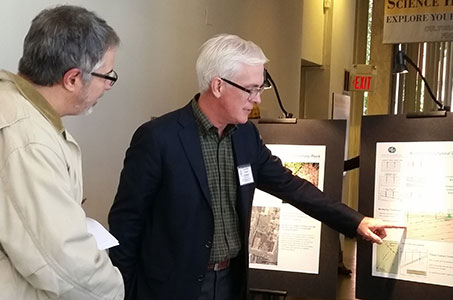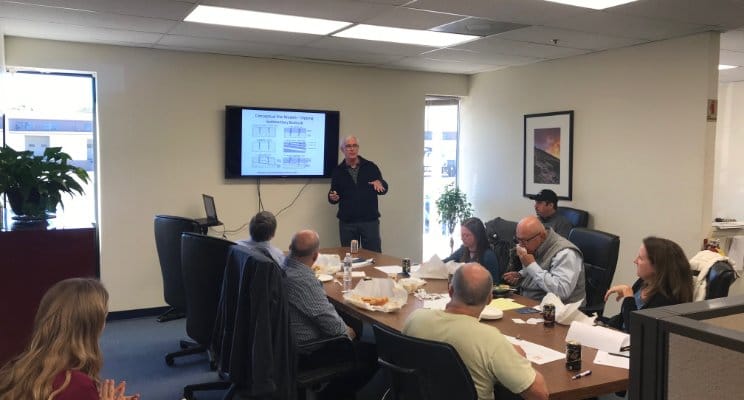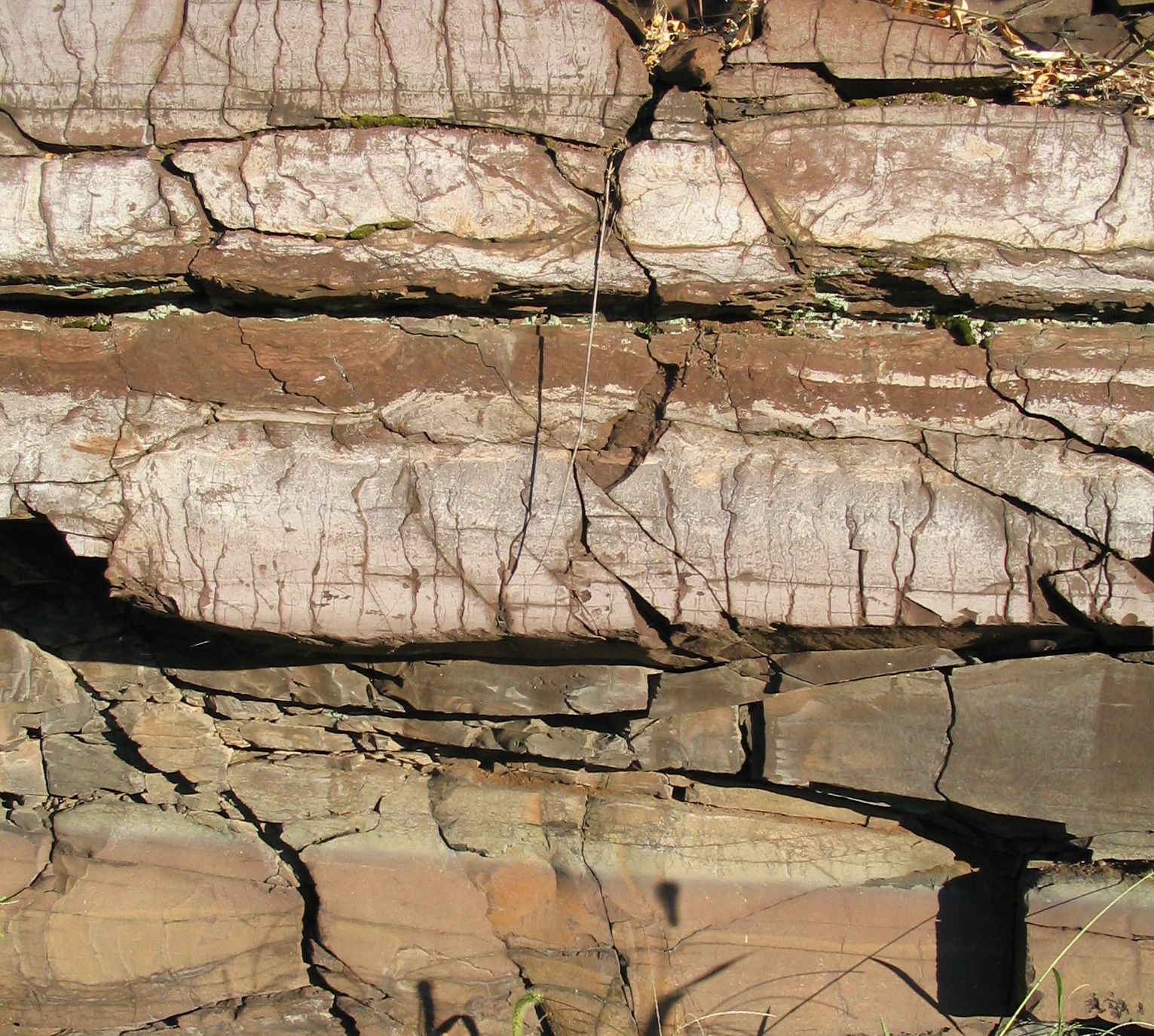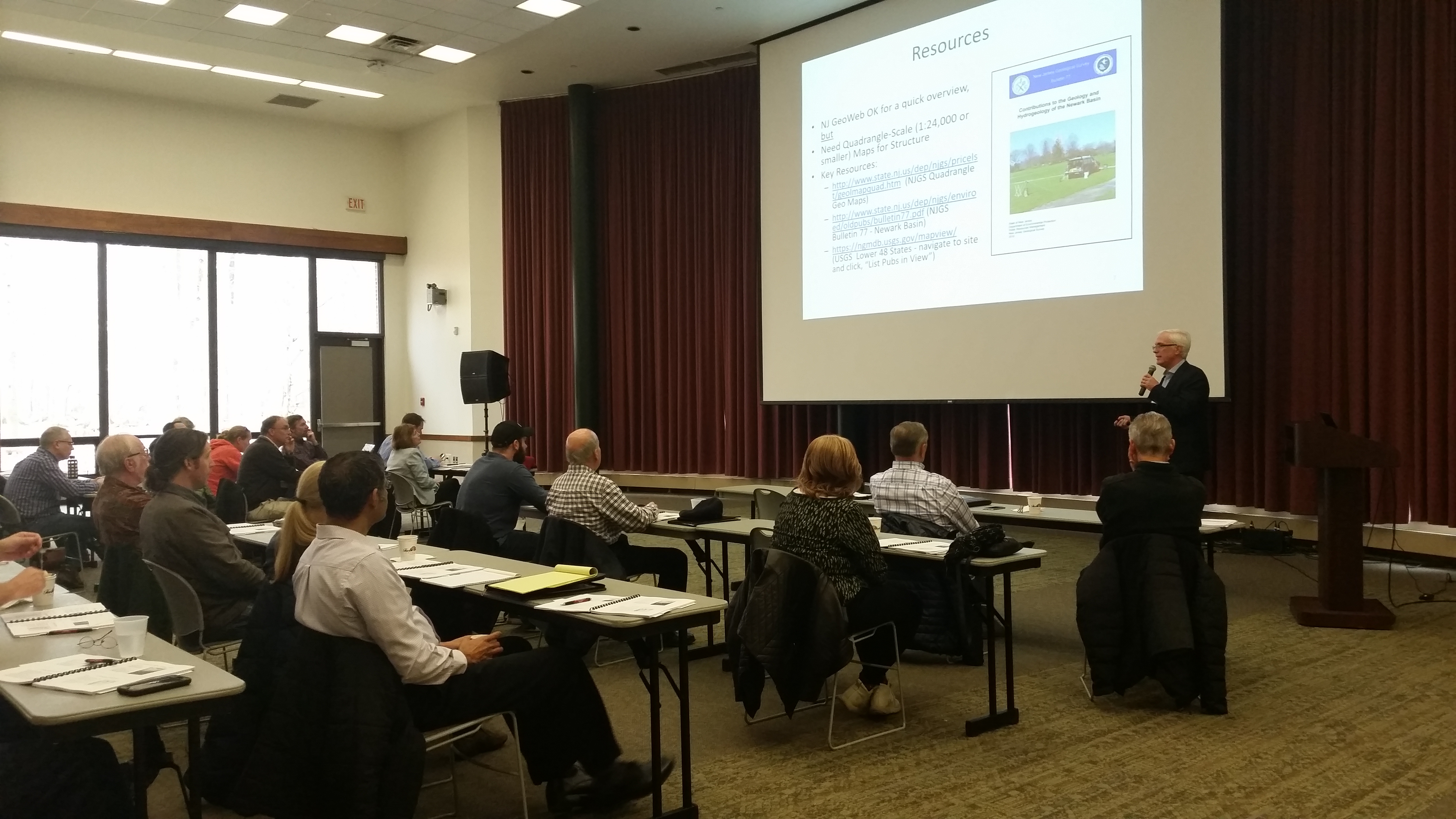

BOREHOLE GEOPHYSICAL LOGGING: APPLICATIONS FOR ENVIRONMENTAL SITE REMEDIATION
INSTRUCTORS: JIM PETERSON & TIM HULL
1.0 LSRP CEU Technical Credit
Our one-hour talk is designed for industry colleagues, professionals, and clients who are interested in learning more about borehole geophysics and PGI's cutting-edge approach. You will learn about the tools and techniques of the trade, as well as the high-value field and analytical services only PGI provides.
WHAT WILL BE COVERED?
- Natural Gamma, Electrical & Electromagnetic Logs
- lithology, stratigraphic correlation, area-wide structure
- Caliper Logs borehole condition, the initial identification of fractures
- Fluid Logs initial indicators of groundwater quality and the vertical positions of hydraulically active fractures
- Image Logs (acoustic and optical televiewers) refine lithology, quantify structural attitude of planar features, assess lateral continuity of fracture zones, observe visually evident features such as NAPL streaming or staining
- Flow-Meter Logs qualitative and quantitative use, ambient & pumping conditions, characterize individual conductive fractures or zones intersecting the borehole
- Water-Quality Logs representative grab sampling at in-flow zones, continuous vertical profiling of redox indicator parameters
WHAT WILL I LEARN?
- What is borehole geophysical logging?
- Definition
- Background
- General utility & limitations
- What problems it can help solve?
- CSM development, review, & refinement
- Fractured bedrock & unconsolidated examples
- Additional lines of evidence to support decision making
- How is it used?
- What each method measures interpretation – independent & synergistic
- Project workflow
- Data management to leverage use of logging data
WHAT OUR STUDENTS SAY...
"Excellent presentation! Knowledgeable Instructors!"
"I learned a lot about how geophysical tools can greatly improve our conceptual site model."
"Instruction was very clear and examples of applications were helpful!"
"Jim and Tim are experts on NJ subsurface characterization."
Contact us to schedule a contactless lunch & learn for your office.


Groundwater in Fractured Bedrock
Instructors: Richard Britton, PG, LSRP (Matrix); Andrew Michalski, PhD, CGWP, PG, LSRP (Michalski and Associates); Jim Peterson, PG, LSRP (Princeton Geoscience)
Offered by Rutgers University's Office of Continuing Professional Education
This one-day course focuses on practical aspects of groundwater in the fractured sedimentary bedrock of the Newark Group (Brunswick Aquifer), where thousands of sites have been impacted by industrial contaminants. Remedial activities at such sites are usually impaired by oversimplified notions regarding groundwater flow and contaminant migration, as well as by the use of inadequate hydrogeologic characterization methods.
The course is intended for geologists, hydrogeologists, environmental professionals, licensed site remediation professionals (LSRPs), remediation engineers, regulators, and corporate site managers responsible for the investigation and remediation of complex bedrock sites. Participants will have an opportunity to improve their understanding of the hydrogeologic framework best used to represent sedimentary bedrock sites.
Approved for NJ LSRP CECs & CT LEP CECs